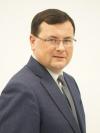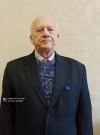References
- Vil'danov I. E. Implementation of interdisciplinary and transdisciplinary approaches in scientific and educational centers of a technical university. Novoe v psihologo-pedagogicheskih issledovaniyah [New in psychological and pedagogical research]. 2024. No. 2 (73). P. 113‒125. (In Russ.)
- Vil'danov I. E., Safin R. S. Scientific and educational centers as the basis for the implementation of the ecosystem approach in a technical university. Novoe v psihologo-pedagogicheskih issledovaniyah [New in psychological and pedagogical research]. 2023. No. 1 (68). P. 136‒148. (In Russ.)
- Vil'danov I. E., Safin R. S., Abitov R. N. Principles of designing scientific and educational centers as the basis of modern teaching technologies in a technical university. Cifrovaya transformaciya v vysshem i professional'nom obrazovanii: Materialy 16-j Mezhdunarodnoj nauchno-prakticheskoj konferencii, Kazan', 25 maya 2022 goda [Digital Transformation in Higher and Vocational Education: Proceedings of the 16th International Scientific and Practical Conference, Kazan, May 25, 2022]. Kazan, 2022. P. 266‒270. (In Russ.)
- Rybakovskij L. L. Migration potential. Concept and evaluation criteria. Sociologicheskie issledovaniya [Law and Education]. 2009. No. 2. P. 29‒36. (In Russ.)
- Ivinskaya M. S. Pedagogical potential of electronic resources and electronic educational environment of the university. Pravo i obrazovanie [Law and Education]. 2018. No. 2. P. 28‒38. (In Russ.)
- Shafikov M. T. Methodological basis for researching scientific and educational potential. Vestnik VEU [Vestnik VEU]. 2019. No. 2 (100). P. 104‒113. (In Russ.)
- Desyatko E. N. Scientific and educational centers and the experience of the state corporation in working with youth: breakthrough development of personnel training. Luchshie praktiki pobeditelej Vserossijskogo konkursa «Zolotye Imena Vysshej Shkoly»: Sbornik nauchnyh statej uchastnikov VI Nacional'noj nauchno-prakticheskoj sessii, Moskva, 17–22 noyabrya 2023 goda [Best practices of the winners of the All-Russian competition «Golden Names of Higher School»: Collection of scientific articles by participants of the VI National scientific and practical sess]. Moscow, 2023. P. 307‒311. (In Russ.)
- Nazarova A. N., Prohorova E. S., Nazarova E. N. Formation of a modern educational environment at the sites of the technopark and the quantorium of a pedagogical university. Problemy sovremennogo pedagogicheskogo obrazovaniya [Problems of modern pedagogical education]. 2024. No. 83-1. P. 168‒171. (In Russ.)
- Marenkov K. A. Modern technological approaches in the field of architectural organization of scientific and educational centers. Gradostroitel'stvo i arhitektura [Urban planning and architecture]. 2023. Vol. 13. No. 4 (53). P. 156‒159. DOI: 10.17673/Vestnik.2023.04.20 (In Russ.)
- Gusejnov R. D. Pedagogical ways and conditions for effective building of the information and educational environment of the university. Pedagogika i sovremennoe obrazovanie: tradicii, opyt i innovacii: sbornik materialov Mezhdunarodnoj nauchno-prakticheskoj konferencii, priurochennoj k Godu pedagoga i nastavnika i 25-letnemu yubileyu Derbentskogo filiala MPGU, Derbent, 30 iyunya – 01 iyulya 2023 goda [Pedagogy and modern education: traditions, experience and innovations: collection of materials of the International scientific and practical conference dedicated to the Year of the teacher and mentor and the 25th anniversary of the Derbent branch of Moscow State Pedagogical University, Derbent, June 30 – July 1, 2023]. Moscow, 2023. P. 20‒25. (In Russ.)
- Grinberg E. Educational center as a way to modernize the education system. International Journal of Professional Science [International Journal of Professional Science]. 2024. № 2-1. P. 28‒34. (In Russ.)
- Fam T. T. N., Zaharchuk M. G. Modernization of the interiors of vocational education institutions as an image space. Molodezhnyj vestnik IrGTU [Youth Bulletin of IrSTU]. 2023. Vol. 13. No. 1. P. 94‒99. (In Russ.)













